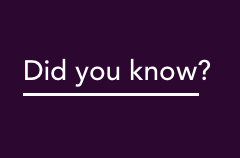Wholesale electricity prices in the National Electricity Market (NEM) averaged $87 per megawatt-hour (MWh) for the first quarter of 2022, up 67% from Q4 2021 and 141% on Q1 2021, driven by increased demand, coal generator outages and higher electricity-generating fuel costs.
AEMO’s Quarterly Energy Dynamics (QED) report shows that wind and grid-scale solar output increased 743 megawatts (MW) from Q1 2021 levels to a new quarterly record of 4,190 MW, along with increases in small-scale solar (460 MW), gas (271 MW) and hydro (42 MW). Declines were seen in brown coal (304 MW) and also black coal generation (374 MW), which hit its lowest Q1 average in two decades.
NEM emissions hit a record first-quarter low at 30.4 million tonnes carbon dioxide equivalent, 4% lower than a year ago despite increased operational demand, driven by lower coal generation combined with continuing growth in wind and grid-scale solar output.
AEMO Executive General Manager Reform Delivery, Violette Mouchaileh, said the quarter highlighted the ongoing electricity price gap between northern and southern NEM states, impacted by thermal generation outages and continuing constraints on northward energy transfers.
“Wholesale prices in Queensland and NSW were again significantly higher than in southern states. This was due to the larger price-setting role of black coal generation and system security constraints limiting daytime electricity transfers from Victoria into NSW, despite an average energy price difference of $48/MWh,” Ms Mouchaileh said.
“Compared to the first quarter of 2021, over 3,000 MW of black coal offers shifted from lower-price bands to above $60/MWh – the largest year-on-year quarterly change since 1998. While higher quarterly offer prices coincided with the surge in international coal prices to record levels, offers had already trended upwards in the months leading up to Q1 2022.
“Coinciding with unplanned coal generation outages, Queensland experienced significant episodes of high demand, with overall price volatility contributing $47/MWh of the region’s average Q1 price of $150/MWh, its second highest for any quarter since 1998. Volatility in other NEM regions was less significant, adding $11/MWh to South Australia’s quarterly average price and $3/MWh or less elsewhere,” she said.
During Q1 2022, negative and zero spot prices reached a new first-quarter high at 6.6% of all dispatch intervals across NEM regions, although this was seasonally down on the second half of 2021. Southern states continued to see higher incidences at 16.4% for South Australia and 12.5% for Victoria, compared to just 1% across the northern states.
For the first time in the NEM, Wholesale Demand Response (WDR) capacity was dispatched as Victorian and South Australian afternoon spot prices spiked to high levels in January.
“WDR enables large commercial and industrial businesses to participate in the spot market by committing to lower usage, assisting power system security and reliability, including peak demand days and periods of high wholesale electricity prices, and increasing competition with potential flow-on price benefits to consumers,” Ms Mouchaileh said.
Since implementation of this new mechanism in late October 2021, 58 MW of WDR capacity has registered across New South Wales, Victoria and South Australia, with 38 MW of this capacity newly registered in Q1.
Gas demand remained stable compared to Q1 2021, with east coast prices at near-record levels across all AEMO markets, averaging $9.93 per gigajoule (GJ) for the quarter, up strongly on their average of $6.05/GJ in Q1 2021. Victoria’s Declared Wholesale Gas Market, Brisbane and Adelaide average prices set new Q1 records, while Gas Supply Hub and Sydney saw their second highest Q1 levels since 2017.
Meanwhile, international gas prices (as represented by the Australian Competition and Consumer Commission netback price) continued at significantly higher levels, peaking at a record $41.24/GJ in January.
In Western Australia’s Wholesale Electricity Market (WEM), operational demand was up 5.9% compared to Q1 2021. Extended high temperatures contributed to the WEM recording its second highest maximum operational demand of 3,980 MW (19 January 2022), only 26 MW below the record (February 2016).
The average Balancing Price increased by 14% from Q4 2021 to $61/MWh, while the number of negatively priced intervals was down from Q1 2021 and the WEM saw no intervals with a Balancing Price lower than -$100/MWh.
A total of 88.7 PJ of gas was consumed in the Western Australian domestic gas market in Q1 2022, which was a 6.2 PJ (-6.6%) decrease from Q4 2021 and a 3.6 PJ (-3.9%) decrease from the same quarter last year.






